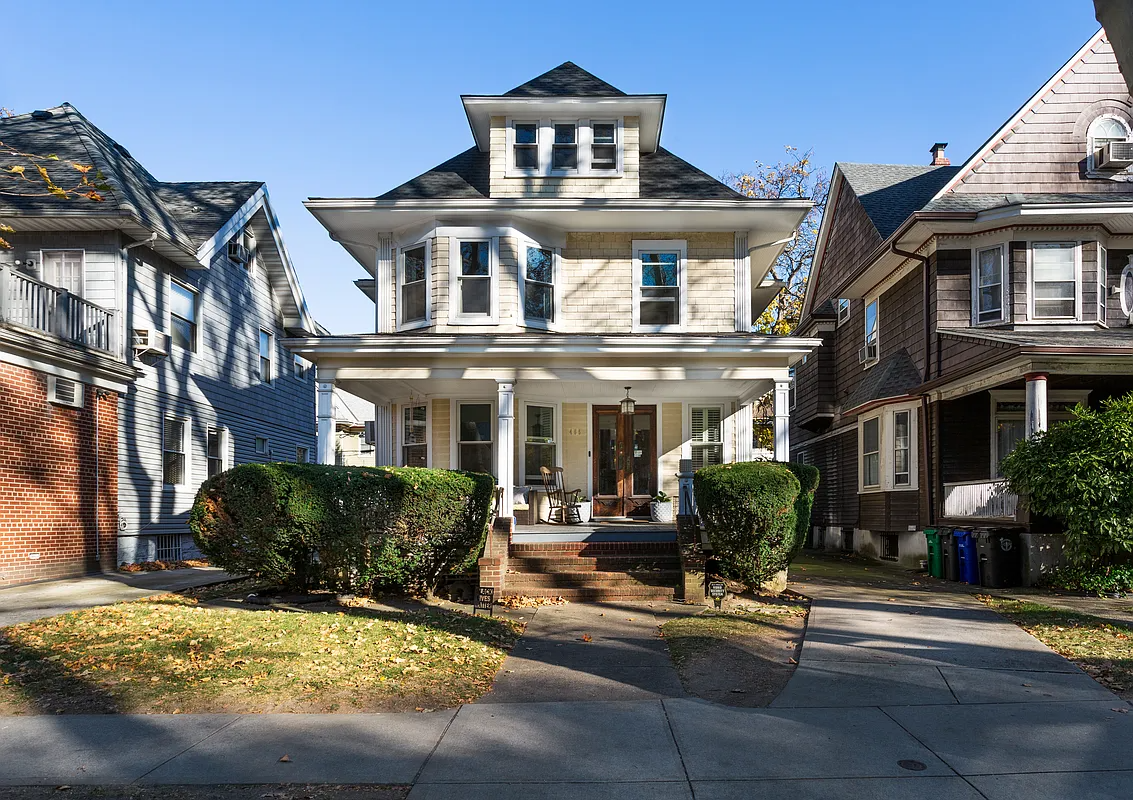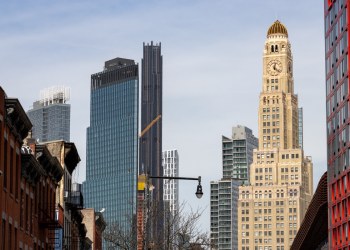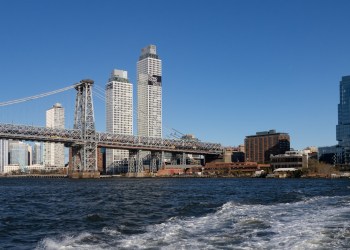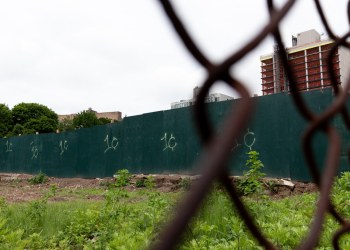Follow Up on South 3rd Street Development
When we took a look at these two adjoining buildings a couple of weeks ago, we didn’t know whether they were being perpetrated by the same developer or not. Our man on the street tells us that indeed they are. He also tells us that the developer is not The Developers Group (the firm is…
When we took a look at these two adjoining buildings a couple of weeks ago, we didn’t know whether they were being perpetrated by the same developer or not. Our man on the street tells us that indeed they are. He also tells us that the developer is not The Developers Group (the firm is only lending its marketing genius to the project). This source also tells us that this is an example of a technique that many developers (especially those with close religious affiliations) have used to juice their FARs. Supposedly, at the beginning of a project, they get a religious organization to commit to occupy some or all of the space, which allows them to build more floor area than they otherwise would be allowed. Then, as the project is nearing completion, the organization backs out. But, guess what, the building is already built and the developer is laughing all the way to the bank. We have nothing but hearsay to back this up, so we’d like to hear from people who actually know what they’re talking about. We’d also be interested to know whether this is what’s going on at 15th Street in the South Slope as well.
More (Un)Hot South Third Street Action [Brownstoner]
Too Tall in Park Slope [Brownstoner]









Okay, everyone– the only suggestion I can offer is to ignore this blowhard. He’s apparently got his own website, but I guess since not enough people read it he feels it’s best to come over here and spew. Sure, he’s got the right… but since the only things he’s looking to accomplish are disturb the mood of this forum, and insult and annoy readers (rather than contribute thought-provoking items), let’s just ignore him rather than answer directly.
**sigh**
iceberg, why don’t you just melt.
I went to the open house at 342 Bedford and although it was nice the broker was a complete moron some ditz from developers group, I hate that firm, were they trying to be developers and couldn’t cut it so now they are realtors? I actually liked the unit but was so turned off by those people…
This is, of course, a pointless discussion since there’s no way in hell that New York is abandoning its zoning regime in our lifetimes.
But I find it weird that iceberg is portraying developers as affordable housing crusaders for exploiting zoning loopholes. No they’re not. They’re just trying to make as much money as possible. Their motivation is the money, not the plight of the houseless. Their actions might result in something good for the houseless, but it isn’t their motivation.
I’d also note that those who support zoning under the belief that restrictions on use and development somehow bolster their own property values are just trying to maximize their wealth, too. No devils and no angels here, just a bunch o’ wealth maximizers.
Iceberg’s description of the economics of the situation, though, it bogus. There is no “demand schedule” that is not being met. Assuming that it is correct that zoning regulations impose an external cost on the market, the supply curve is being artificially, negatives constrained and the quantity of housing produced by the market is less than optimal. But there will still be a market clearing price and there is nothing that can be inferred about what will happen to future prices. That is, the claim that “housing prices can only increase” is just wrong.
Further, *none* of this is related to the quality of the housing, just the quantity. Shoddy materials and crappy design are just choices being made the developers that they think will maximize their profit, i.e. their target customers are ones who don’t value these things as much as the location and the amenities of the neighborhood or whatever.
And to equate zoning regulations to ‘central planning’ is absolutely bizarre. You do understand the difference between a regulated, but otherwise free market and a centrally planned market, right iceberg?
BTW, Houston has no zoning. The result, much more affordable housing than New York, less wealth accumulation for those who do own houses, the development of private communities mainly for the purpose of trying to institute some regulations that will increase home values, and a fairly miserable (IMHO) place to live/visit in comparison with New York.
Iceberg wants Brooklyn to resemble Houston. Unfettered development created an ugly monstrosity of a city that Houston officals are now trying to counteract. But rest assured that the developers only built what they could profit on. But it is cheaper than NYC. So maybe by building a cesspool, prices do stay affordable. Sounds like you need to look outside of your textbooks.
Iceberg, you’ve got it all wrong. I’m not opening my paper mill to be economically feasible.
I’m opening it so you can smell it on a daily basis.
Oh, the big words. Just poking fun. Seriously though, developers are not out to build affordable housing, they’re out to make money, so to say that affordable housing is more important that preserving the aesthetics of a neighborhood really has no realistic relation to recission of all zoning restrictions. No zoning restrictions will not result in developers flooding the market with so much supply that prices drop. Developers are in business to make money, not build affordable housing.
anon – GREAT link (to the NYTimes piece)! thanks for posting.
Iceberg, developers want to make money – and all the power to them – but people who live in and invest in a neighborhood due to its charm and historic character have a right to voice concern about developments that deterimentally affect such charm or historic character.
If all zoning restrictions were removed, developers would still make cheap ugly buildings in neighborhoods where the developer thought they could make a good profit. The result would be more ugly buildings in popular, charming brownstone neighborhoods. Eventually, it is possible that such popular, charming brownstone neighborhoods would not be so charming due to all of the unattractive highrise structures being built. Such neighborhoods might even be considered less “prime” due to all of the ugly development resulting in a potential decline of that area.
If developers realized some sort of windfall resulting from a lifting of all zoning restrictions, it’s naive to assume that they would take that windfall and build exciting, beautiful buildings, fitting in with the context of a neighborhood, at more affordable prices benefiting all of the teaming “houseless” of NYC. The more likely scenario is that the developers would end up ruining a few nice brownstone areas.